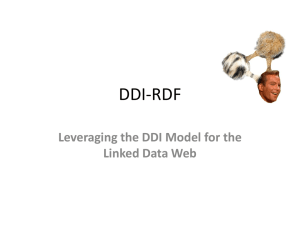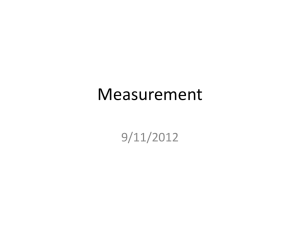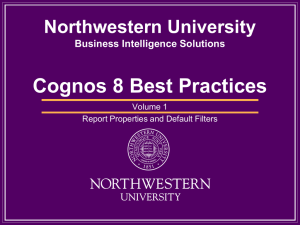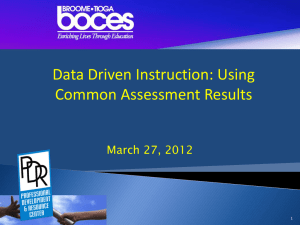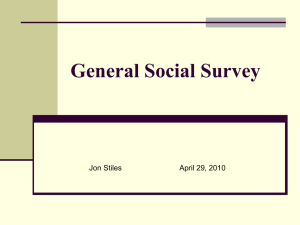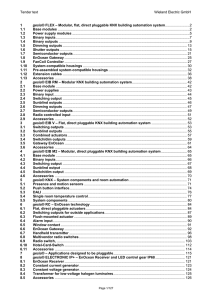Implementing Digital Object Identifiers at the GESIS Data
advertisement
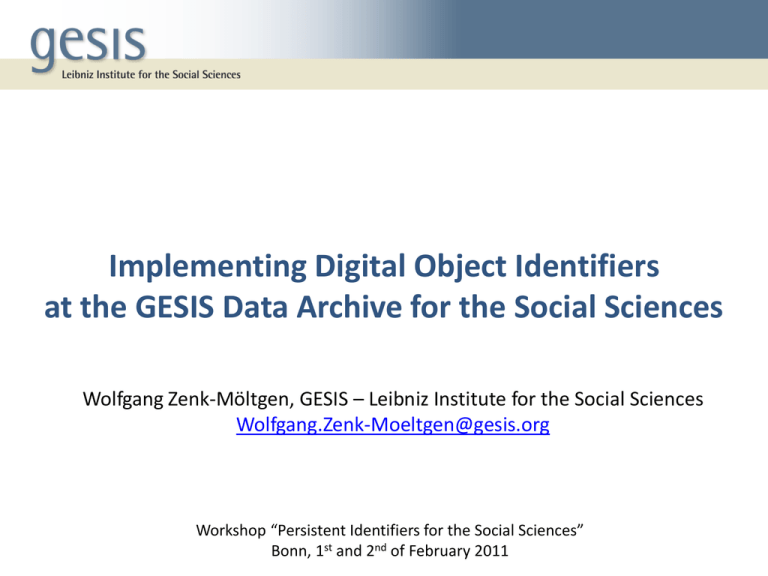
Implementing Digital Object Identifiers at the GESIS Data Archive for the Social Sciences Wolfgang Zenk-Möltgen, GESIS – Leibniz Institute for the Social Sciences Wolfgang.Zenk-Moeltgen@gesis.org Workshop “Persistent Identifiers for the Social Sciences” Bonn, 1st and 2nd of February 2011 Overview Initial Situation Requirements for Persistent Identifiers Implementation Decisions Version Management Allocation of DOI Names Workflow Integration Technical Developments • DBK Extension to Manage Versions and DOIs • DDI Export for Enhanced Publications Including URNs Conclusions Initial Situation • The Data Archive provides research data for the social sciences • Currently 4480 studies, including cross-section, national or international comparative, and longitudinal studies • The Data Archive works on different levels of data processing, and data documentation • Metadata on study level: The Data Catalogue (DBK) • Enables searching and browsing for users • Management system for internal and external information • Bibliographic citation requirement for data users • http://www.gesis.org/en/services/data/retrieval-data-access/data-archive-service/citation-of-research-data/ • Includes Study Identifier „ZAnnnn“ Requirements for Persistent Identifiers • Clear understanding of what is to be identified • E.g. survey projects, series of studies, data collection events, questionnaires or other instruments, datasets, variables • Guarantee of unique names • Can I control that nobody else will use the same name for anything else, and can I avoid duplicates? • Expectation of stability • Woody Allen: „Eternity is really long, especially near the end“ • Change management • Which processes must be triggered when change occurs? Implementation Decisions • We want to identify datasets • Not study series, studies, data collection events • Not variables or questions • Independent from specific format (SPSS, STATA, SAS) • We joined the DataCite consortium • Using DOIs as PI system with existing infrastructure • Supporting citation of research data • Planning added value services • We keep DDI as the main metadata standard • Including URN names for every DDI object • Aiming at interoperability • We keep track of dataset versions • Documentation inside the dataset • Policy for version numbering Version Management • DBKEdit is used as management system at the Archive: • Introduction of mandatory version numbers • Format: N.N.N (in accordance to DDI standard) starting with 1.0.0 • Rules for increasing major, minor, revision number • Documenting also the version date, author, title and description • Errata of the current version are documented • Corrected errata are kept for documenting a new version • Version History and Errata are published • da|ra is the service provider for DOI allocation: • A DOI proposal is transmitted from DBKEdit • Together with the URL and some metadata • DOI allocation takes place here • URL and/or metadata changes have to be transmitted from DBKEdit again Allocation of DOI Names Prefix schema name Suffix doi:10.4232/1.0001 doi® GESIS DBK DBK incremental no. Standard for DataCite: UTF8, one prefix per institution no semantics in DOI http://info1.gesis.org/dbksearch13/print.asp?no=0001&search=0001&search2=&db=D Workflow Integration Online Publication Publication on CD-ROM Report-Tool Longtermpreservation DSDM Versions and DOIs DBKEdit DBK ZACAT DBKEdit Data Catalogue Online Study Catalogue Data Catalogue Edit-Tool DSDM CBE Dataset Documentation Manager CodebookExplorer Technical Developments DBKEdit - Data Catalogue Edit-Tool Documentation and management of metadata on study level of all archived studies Information provided For each study/dataset (partly bi-lingual): Title & study number Primary investigators & fieldwork agencies Universe & sampling Abstracts Related publications Access categories Questionnaires, etc. Notes and comments for internal use Extension to manage versions, errata, and DOIs. Publication via - ZACAT (Nesstar) - CBE (CodebookExplorer) - DBK (Data Catalogue) DBKEdit – Management of Metadata on Study-Level DBK – Research and Information Provided for the User Technical Developments DDI Export for Enhanced Publications including URNs contains Study number SPSS variable names, labels, and URNs Variable groups Complete question, answer texts and notes for each variable SPSS values and value labels <l:VariableScheme id="Archive Study ID_VarSch"> <l:Variable id="SPSS Variable Name" urn=”urn:ddi:de.gesis:VariableScheme.Archive Study ID_VarSch.1.0.0:Variable.SPSS Variable Name.1.0.0”>* <r:UserID type="SPSS Variable Name"> SPSS Variable Name </r:UserID> <r:Label maxLength="255" type="label"> SPSS Variable Label</r:Label> <l:QuestionReference> <r:ID>Archive Study ID _QSPSS Variable Name</r:ID> </l:QuestionReference> </l:Variable> * Repeatable Conclusions Establishing DOIs for research datasets is easy … if you have a service provider like da|ra Managing the metadata and keep track of versions is possible … if you invest into documentation systems and establish a policy Time will tell, … if data and it‘s identifiers will be for eternity But remember: „The preservation of valuable data sets and their distribution on demand is of utmost importance for the progress of science.“ from „Data for eternity“, in: Nature Geoscience 3, 219 (2010) doi:10.1038/ngeo840 Thank you! Implementing Digital Object Identifiers at the GESIS Data Archive for the Social Sciences Wolfgang Zenk-Möltgen, GESIS – Leibniz Institute for the Social Sciences Wolfgang.Zenk-Moeltgen@gesis.org Workshop “Persistent Identifiers for the Social Sciences” Bonn, 1st and 2nd of February 2011

